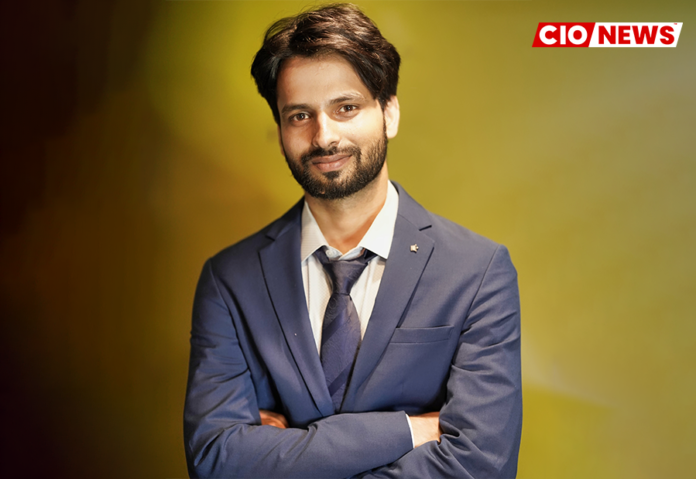
AI has played a pivotal role in the evolution of wearable medical technologies.
Introduction: The year 2023 has been a pivotal period for the healthcare industry, marked by significant advancements in wearable medical technologies. From enhanced monitoring capabilities to breakthroughs in data analytics, these innovations have not only improved patient outcomes but have also paved the way for transformative trends set to dominate in 2024.
Recap of 2023 Innovations:
- Continuous health monitoring:
In 2023, wearable devices will evolve beyond basic fitness tracking to offer continuous health monitoring. Advanced sensors now enable real-time tracking of vital signs, allowing for early detection and intervention in various health conditions. Continuous glucose monitoring, blood pressure monitoring, biofeedback devices, and ECG tracking have become commonplace, providing individuals and healthcare professionals with valuable insights.
- Integration of Artificial Intelligence (AI):
AI has played a pivotal role in the evolution of wearable medical technologies. Machine learning algorithms are now capable of analyzing vast amounts of health data, identifying patterns, and providing personalized health recommendations. This integration has enhanced the accuracy of diagnostics and the effectiveness of treatment plans.
- The shift from medicines to medical devices:
The shift from medicines to medical devices is crucial for advancing healthcare in several ways. Unlike traditional pharmaceuticals that primarily target symptoms, medical devices often provide innovative solutions that address the root causes of health issues. Devices such as wearable monitors, smart implants, and diagnostic tools offer personalized, real-time data, enabling more precise diagnostics and tailored treatments. This shift promotes preventive care, reducing reliance on reactive pharmaceutical interventions. Additionally, medical devices can enhance patient outcomes, fostering a paradigm of proactive health management. Embracing this transition empowers both healthcare providers and patients with a broader array of effective, technologically-driven options for improving overall health and well-being.
Trends set to dominate in 2024:
- Personalized Health Insights:
The coming year will see a heightened focus on delivering personalized health insights. Wearable devices will leverage AI algorithms to provide individuals with tailored recommendations based on their unique health data. This individualized approach aims to empower users to make informed decisions about their well-being.
- Ecosystem Integration:
Wearable technologies will increasingly become part of larger healthcare ecosystems. Integration with electronic health records (EHRs) and other healthcare platforms will enable seamless information sharing between patients, caregivers, and healthcare providers. This interoperability is crucial for ensuring comprehensive and coordinated healthcare delivery. One more very interesting thing that is coming in this decade is the evolution of neurostimulation devices and their application in the neuropsychiatric domain. These devices are getting accepted by clinicians at a very fast pace all around the world, and the reason for that is their great efficacy with very few or nearly no side effects.
- Mental health monitoring:
In 2024, there will be a growing emphasis on incorporating mental health monitoring features into wearable devices. Advanced sensors and AI algorithms will enable the detection of stress levels, mood patterns, and sleep quality, providing valuable insights for mental health management.
- Augmented Reality (AR) and Virtual Reality (VR) Applications:
AR and VR technologies will find increased application in wearable medical devices, enhancing the patient experience and improving treatment outcomes. From guided rehabilitation exercises to immersive therapy sessions, these technologies will play a pivotal role in healthcare delivery.
Conclusion:
As we reflect on the transformative innovations of 2023 and look ahead to the trends set to dominate in 2024, it is evident that wearable medical technologies are revolutionizing the way we approach healthcare. The intersection of advanced sensors, AI, and connectivity is creating a new era of personalized, data-driven healthcare that promises to improve patient outcomes and redefine the patient-provider relationship. The journey towards a more connected and technologically advanced healthcare
Also read: Organizations should be driven based on people and processes instead of emphasizing technology
Do Follow: CIO News LinkedIn Account | CIO News Facebook | CIO News Youtube | CIO News Twitter
About us:
CIO News, a proprietary of Mercadeo, produces award-winning content and resources for IT leaders across any industry through print articles and recorded video interviews on topics in the technology sector such as Digital Transformation, Artificial Intelligence (AI), Machine Learning (ML), Cloud, Robotics, Cyber-security, Data, Analytics, SOC, SASE, among other technology topics.





